The state of sex work legalization around the world
The world's oldest profession has come a long way, but some say it is not enough

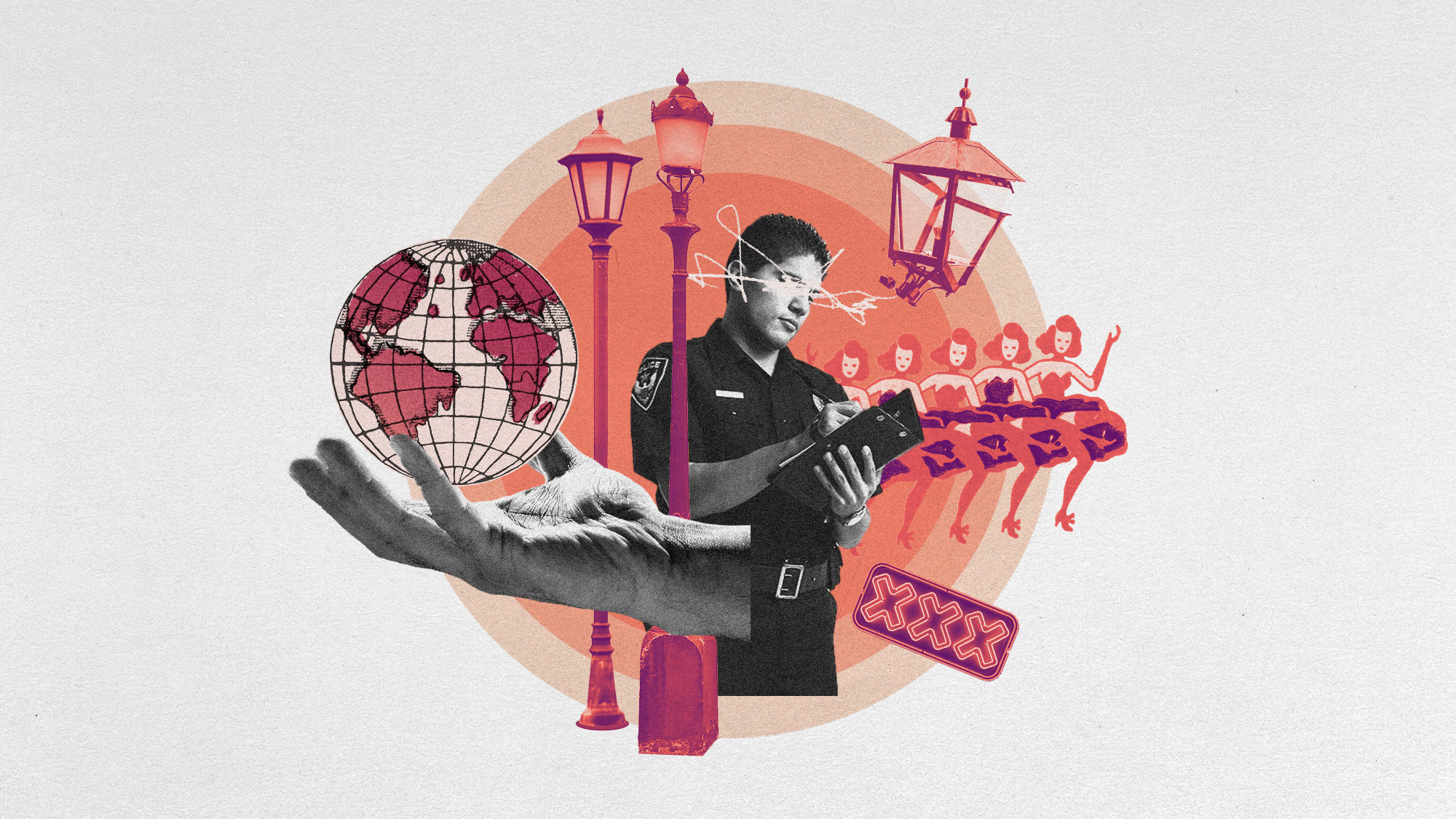
A free daily email with the biggest news stories of the day – and the best features from TheWeek.com
You are now subscribed
Your newsletter sign-up was successful
Sex workers' rights and the laws that govern them vary around the world. Despite being considered the world's oldest profession, the buying and selling of sexual services remains completely outlawed in many countries. However, sex worker rights advocates and human rights organizations have decried the criminalization of consensual sex work and urged governments to step in to mitigate the risk of exploitation. Some countries have found ways to embrace the industry through a variety of legal frameworks, including regulated legalization and targeting the clientele rather than the sex workers themselves.
Legalization
In the countries that embrace the legalization framework, buying and selling sexual services is not only legal but also regulated by the government. In some of those places, operating brothels and soliciting sex from a sex worker is also legal. The regulations vary from country to country and can include requiring sex workers to register or restricting legal sex work in a particular region.
In some countries, sex work law varies by state or territory. In Australia, for example, sex work is only fully legal in Queensland, and sex workers and brothels are required to be licensed. In the United States, Nevada is the only state with legally regulated sex work.
The Week
Escape your echo chamber. Get the facts behind the news, plus analysis from multiple perspectives.

Sign up for The Week's Free Newsletters
From our morning news briefing to a weekly Good News Newsletter, get the best of The Week delivered directly to your inbox.
From our morning news briefing to a weekly Good News Newsletter, get the best of The Week delivered directly to your inbox.
With the growth of online sex work, the legal market in the Netherlands has reached a crossroads. A recently proposed law would allow licensed sex workers to work from their homes but was met with a mixed reception from Dutch councils. Traditional brothels are "increasingly being replaced by sex workers booking clients online and seeing them at home," said The Telegraph. A few Dutch cities already issue licenses for sex work operators to work from home. Still, many of the 150 municipalities surveyed by NOS, the Netherlands' largest news organization, believed legalizing at-home sex work on a national scale would be a "nuisance" for their communities.
Legal throughout the country: Bangladesh, Bolivia, Colombia, Ecuador, Eritrea, Germany, Greece, Hungary, Lebanon, Mozambique, Netherlands, Panama, Peru, Sierra Leone, Switzerland, Turkey, Uruguay, and Venezuela
Legal in some states/territories: Australia, El Salvador, Mexico, United States
Abolitionism
The most globally prevalent sex work law framework is abolitionism. Under this philosophy, both buying and selling sexual services is legal, but "to prevent exploitation of the sex worker," the World Population Review said, "public solicitation; the operation of brothels; and forms of 'organization' such as pimping, procuring, and forced prostitution are all usually prohibited."
A free daily email with the biggest news stories of the day – and the best features from TheWeek.com
This approach is often described as the middle ground between criminalization and legalization. While advocates for abolitionism believe some sex workers choose to enter the trade, the practice is still frowned upon. They believe governments should allow sex work to occur as long as it does not infringe upon public safety and public solicitation remains criminalized.
Abolitionism throughout the country: Algeria, Argentina, Austria, Bahamas, Belgium, Benin, Botswana, Brazil, Bulgaria, Burkina Faso, Central African Republic, Chile, Costa Rica, Cuba, Cyprus, Czech Republic, Denmark, Dominican Republic, DR Congo, Ethiopia, Estonia, Fiji, Finland, Guatemala, Hong Kong, Honduras, India, Kazakhstan, Kyrgyzstan, Latvia, Luxembourg, Macau, Madagascar, Malawi, Mali, Malta, Monaco, Namibia, Nicaragua, North Macedonia, Paraguay, Poland, Portugal, Romania, Senegal, Singapore, Solomon Islands, South Sudan, Spain, Tajikistan, Thailand, Timor-Leste, Togo, United Kingdom, Zambia
Abolitionism in some states/territories: Australia, El Salvador, Kenya, Mexico, Nigeria
Neo-abolitionism
Neo-abolitionism is yet another approach to sex work law, also known as the Swedish, Nordic, or End Demand model. It originated in Sweden in 1999 and is currently in place in several European countries. Neo-abolitionists push for laws that penalize the customers soliciting sexual services while not punishing the sex workers themselves. They consider sex work to be violence against the workers and do not believe sex workers have a choice in the matter. They also claim to offer exit services for those who want to leave the trade. Under neo-abolitionist laws, sex workers are "considered legally blameless when caught in the act" while pimps and clients are prosecuted, said the World Population Review. This "reverse loophole" is intended to "suppress demand."
While this framework is supposedly meant to advocate for safety and the end of exploitation, sex workers around the world have been "protesting this model since its introduction," sex worker collective Swarm said. In places where it has been implemented or proposed, there has been "huge resistance from the sex workers who are most impacted." They are against the model because it puts them at risk. While there may be fewer clients, demand still exists, which means that sex workers "have a lot less freedom to turn down clients we don't want to see, and have to take more risks at work to make up for the loss of income." Additionally, neo-abolitionist laws that criminalize third parties "rarely differentiate between coercive or exploitative third party involvement or more practical and supportive third parties," putting the support systems that sex workers rely on at risk.
Neo-abolitionism throughout the country: Belize, Canada, France, Israel, Ireland, Iceland, Norway, Sweden
Decriminalization
Decriminalization calls for the abandonment of laws that prohibit selling, buying, organizing, and soliciting sexual services. The difference between this approach and legalization is the lack of government regulation. Many human rights organizations and sex worker advocates identify it as the safest legal approach to keep workers safe and reduce exploitation.
Criminalizing sex work makes "sex workers more vulnerable to violence on the job and less likely to report violence," said the American Civil Liberties Union (ACLU). It prevents them from "accessing health care and other critical services" while further marginalizing "some of society's most vulnerable groups, such as trans women of color and immigrants." The ACLU has advocated for decriminalization for decades, saying it would help "sex workers out of the dangerous margins and into the light where people are protected — not targeted — by the law."
Last fall, the United Nations Working Group on discrimination against women and girls released a landmark report that called for the full decriminalization of voluntary adult sex work around the world. The report's recommendations for enhancing sex workers rights said they "should be involved in creating the legal and policy frameworks that impact them," because they are "often left out of this process, have their views ignored, or are otherwise marginalized," said Carrie Eisert, Amnesty International's policy advisor.
Decriminalized sex work: Belgium, New South Wales, New Zealand
Theara Coleman has worked as a staff writer at The Week since September 2022. She frequently writes about technology, education, literature and general news. She was previously a contributing writer and assistant editor at Honeysuckle Magazine, where she covered racial politics and cannabis industry news.
-
 How the FCC’s ‘equal time’ rule works
How the FCC’s ‘equal time’ rule worksIn the Spotlight The law is at the heart of the Colbert-CBS conflict
-
 What is the endgame in the DHS shutdown?
What is the endgame in the DHS shutdown?Today’s Big Question Democrats want to rein in ICE’s immigration crackdown
-
 ‘Poor time management isn’t just an inconvenience’
‘Poor time management isn’t just an inconvenience’Instant Opinion Opinion, comment and editorials of the day
-
 Should Britain withdraw from the European Convention on Human Rights?
Should Britain withdraw from the European Convention on Human Rights?Talking Point With calls now coming from Labour grandees as well as Nigel Farage and the Tories, departure from the ECHR 'is starting to feel inevitable'
-
 The Supreme Court case that could forge a new path to sue the FBI
The Supreme Court case that could forge a new path to sue the FBIThe Explainer The case arose after the FBI admitted to raiding the wrong house in 2017
-
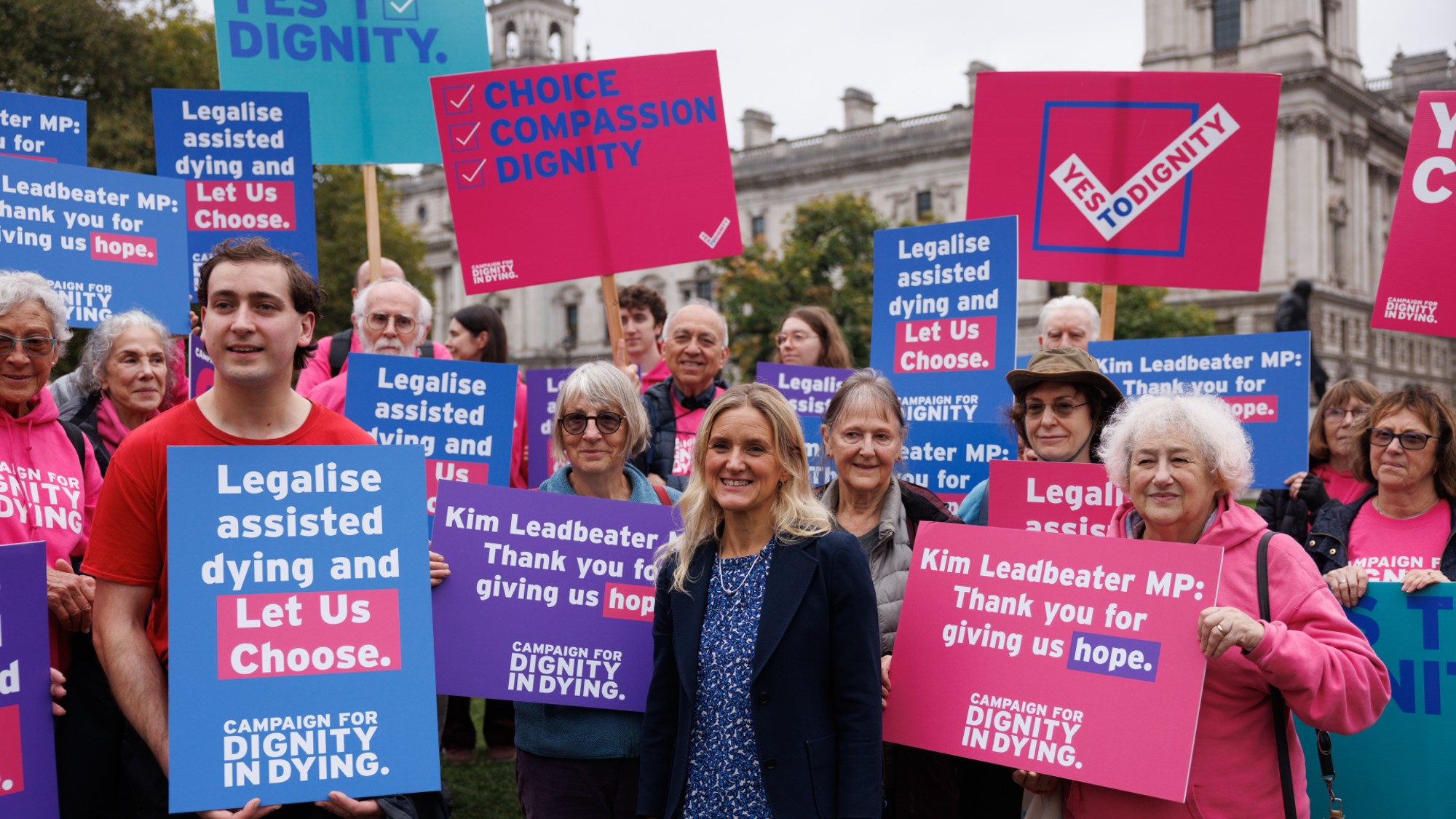 How would assisted dying work in the UK?
How would assisted dying work in the UK?The Explainer Proposed law would apply to patients in England and Wales with less than six months to live – but medics may be able to opt out
-
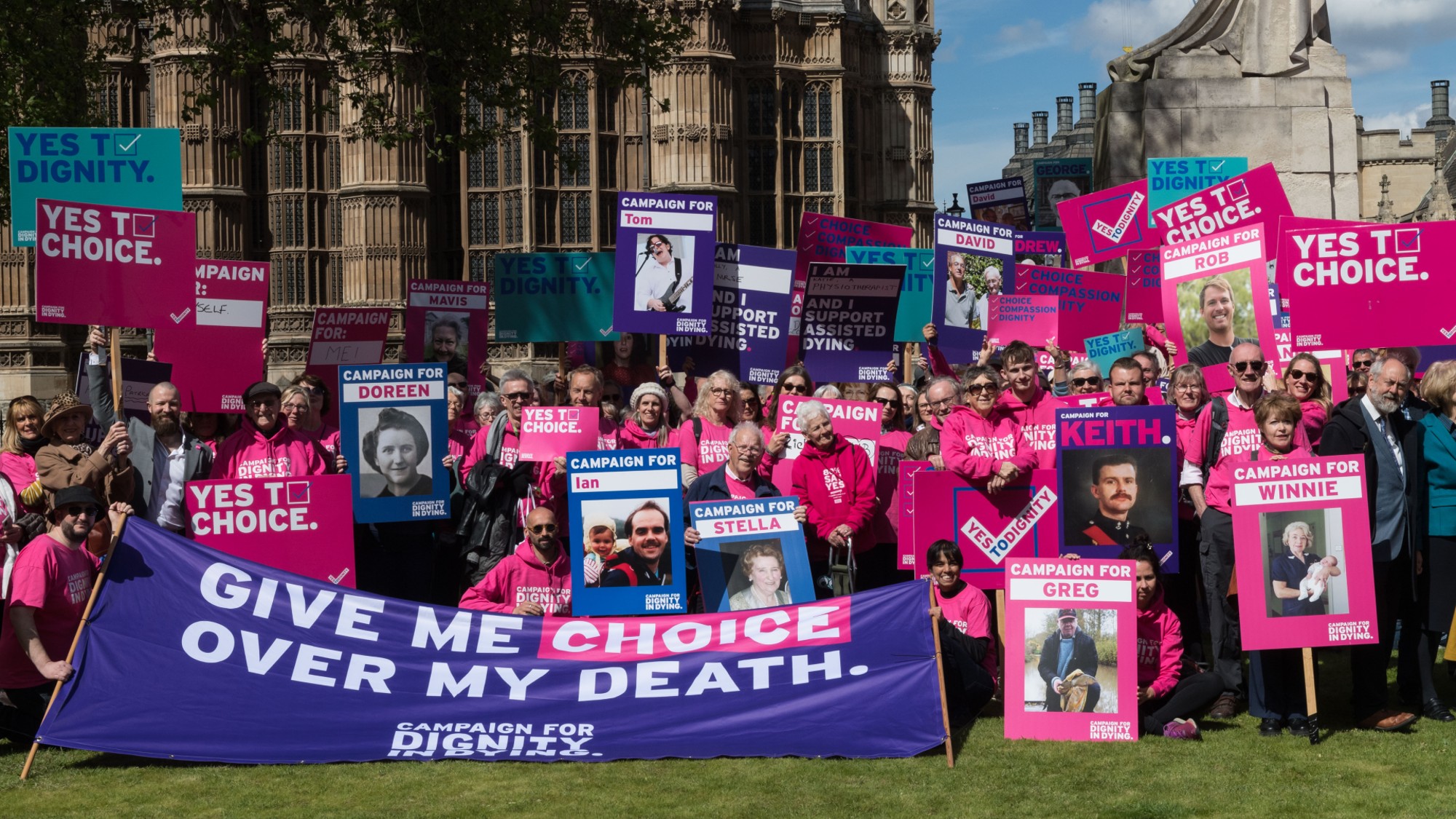 Assisted dying: will the law change?
Assisted dying: will the law change?Talking Point Historic legislation likely to pass but critics warn it must include safeguards against abuse
-
 The EU's landmark AI Act 'rushed' out as countdown begins on compliance
The EU's landmark AI Act 'rushed' out as countdown begins on complianceThe Explainer 'We will be hiring lawyers while the rest of the world is hiring coders' – Europe's warning about new AI legislation
-
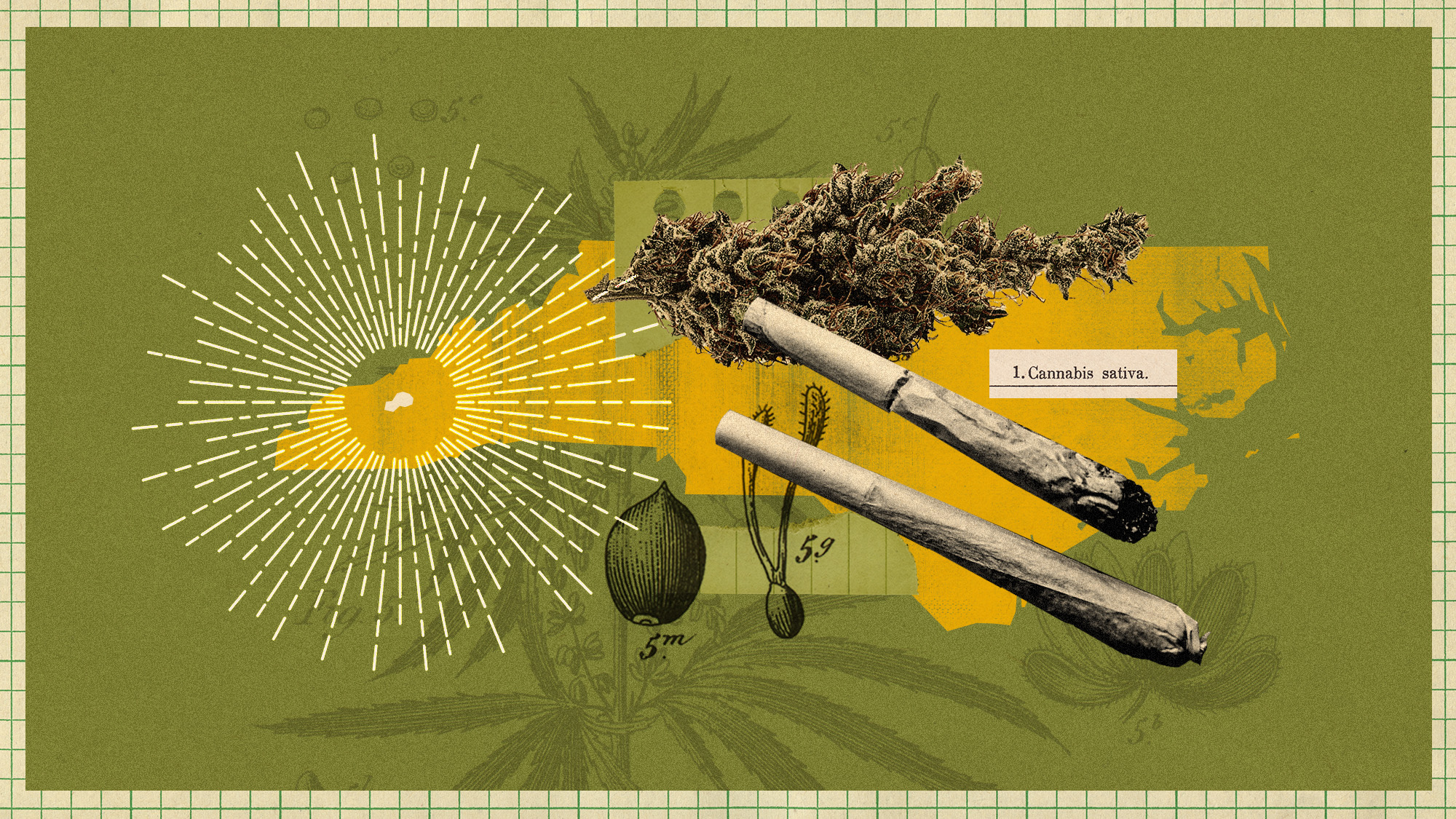 How a Cherokee tribe used tribal sovereignty to open North Carolina's only legal cannabis dispensary
How a Cherokee tribe used tribal sovereignty to open North Carolina's only legal cannabis dispensaryUnder the radar The tribe has plans to open sales to any adult in the state, even though the drug is still illegal there
-
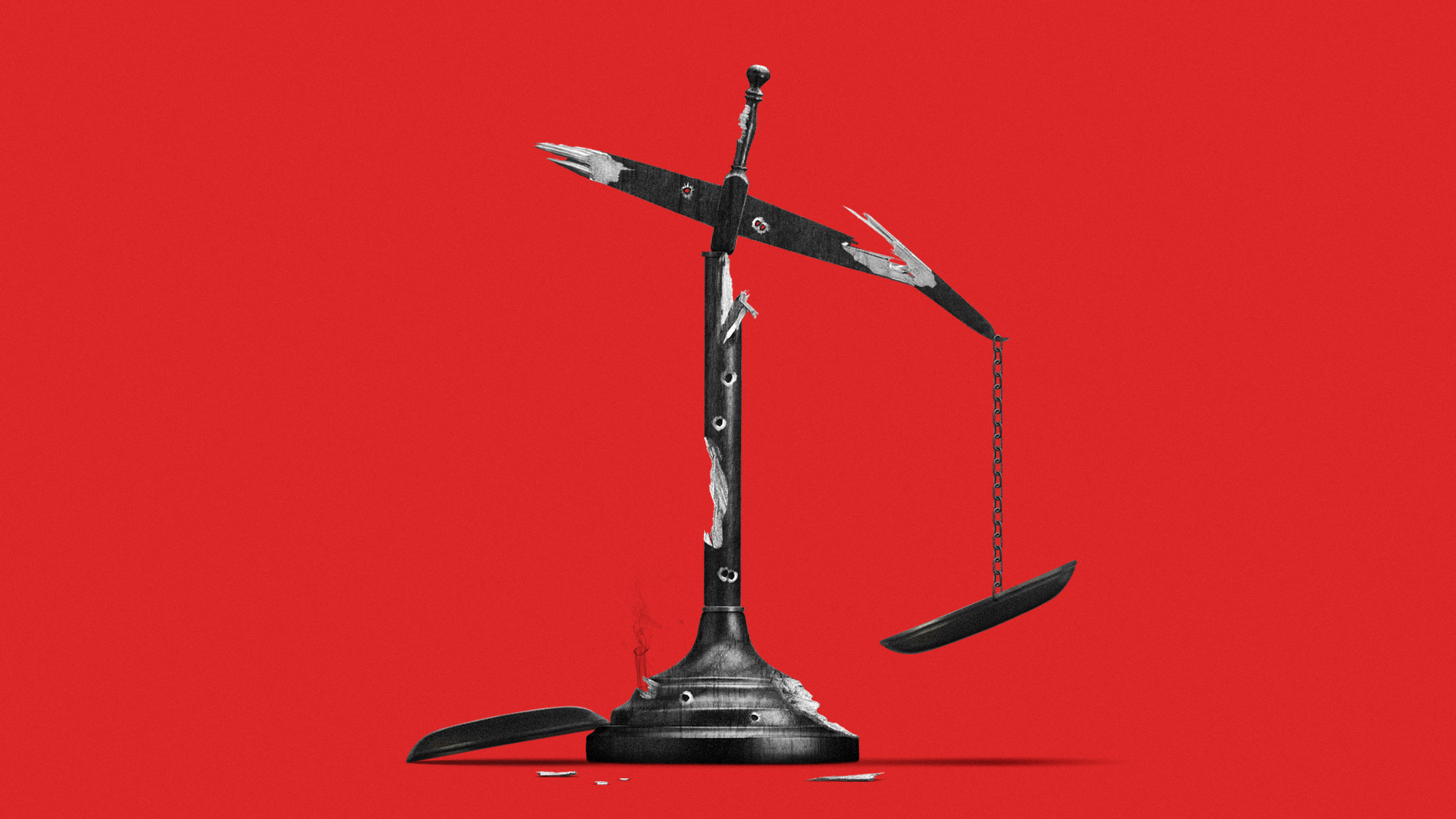 Is international law falling apart?
Is international law falling apart?Today's Big Question Conflict in Gaza is testing the strength of the two intergovernmental courts in The Hague
-
 LGBTQ+ rights in Iraq: how morality laws ramped up
LGBTQ+ rights in Iraq: how morality laws ramped upThe Explainer Same-sex relationships and gender reassignment surgery are now criminalised in latest attack on targeted community
